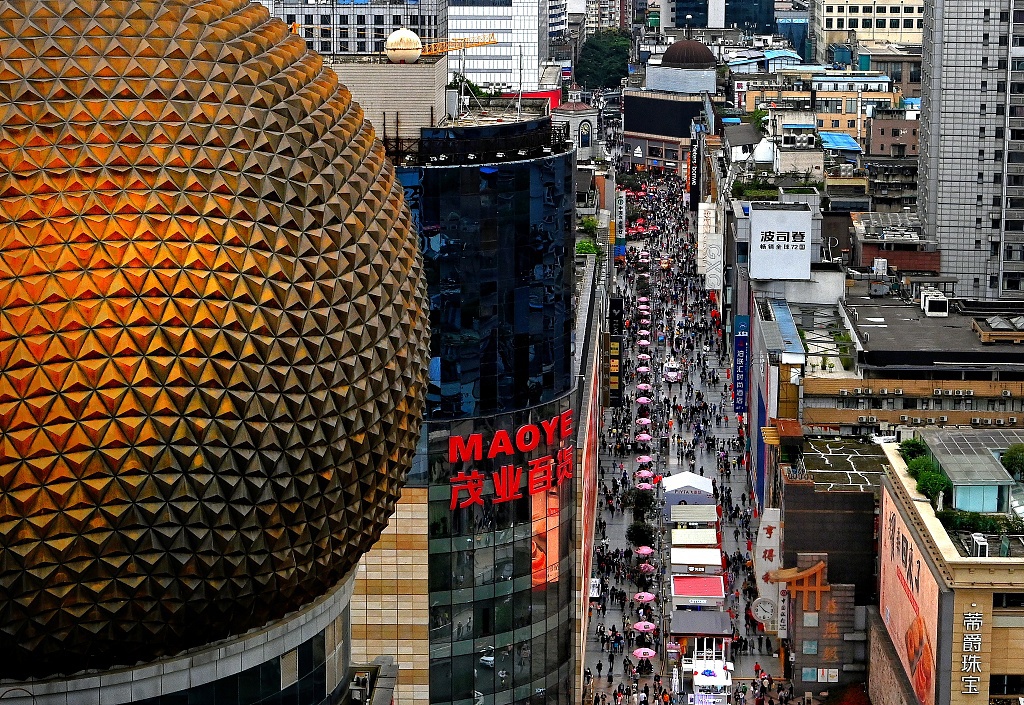Chengdu offers a glimpse of tranquility amid bustling city life
- By Zhu Bochen
 0 Comment(s)
0 Comment(s) Print
Print E-mail China.org.cn, April 9, 2021
E-mail China.org.cn, April 9, 2021

If you have ever walked along the streets of Chengdu, the capital city of southwest China's Sichuan province, chances are that you have experienced how commercial spectacles exist side by side with "greasy spoons" amid the hustle and bustle of daily life. That's one of the reasons why Sanlian Lifeweek Magazine has named Chengdu China's metropolis with the strongest breath of life.
Home to the country's giant panda research and breeding base as well as a hub for national consumption and cultural tourism, Chengdu has long enjoyed a reputation for featuring a culture where tradition and modernity meet. This fusion allows visitors and residents to embrace a sophisticated modern life without forgoing the customs rooted in China's soul, giving a taste of tranquility.
This is also the case for Chengdu's architecture and overall urban planning. For example, the rectangular Xicun Courtyard in the city's Qingyang district skirts several city blocks, its seemingly unconventional urban design creating a park-like "green basin" for residents and functioning as a sanctuary amid bustling urban life.

The Xicun Courtyard was thereby shortlisted for the Public Space Award and Architectural Design Award in the 2020 Sanlian City for Humanity Awards, with final winners announced at the awards ceremony in Chengdu on April 8, 2021.
"The reason why Chengdu was chosen to host such an event is because in the race for development among new first-tier cities, Chengdu has been able to preserve its seemingly unruly street culture as an indispensable part of its public space," explained local media.
The 2020 Sanlian City for Humanity Awards seeks to explore how we can rebuild human connections after an extended period of social distancing due to the COVID-19 pandemic. Seen in this context, Chengdu is a good example of life returning to normal with its busy tea houses, street artists, and local restaurants.
In addition, a world-heritage-themed marathon is scheduled for April 24. The route will take marathoners past both cultural and natural heritage sites as well as Chengdu's World Heritage Irrigation Structures.
The city will also host the 31st Summer World University Games in 2022, which is expected to draw over 10,000 student-athletes and officials from more than 150 countries and regions.





